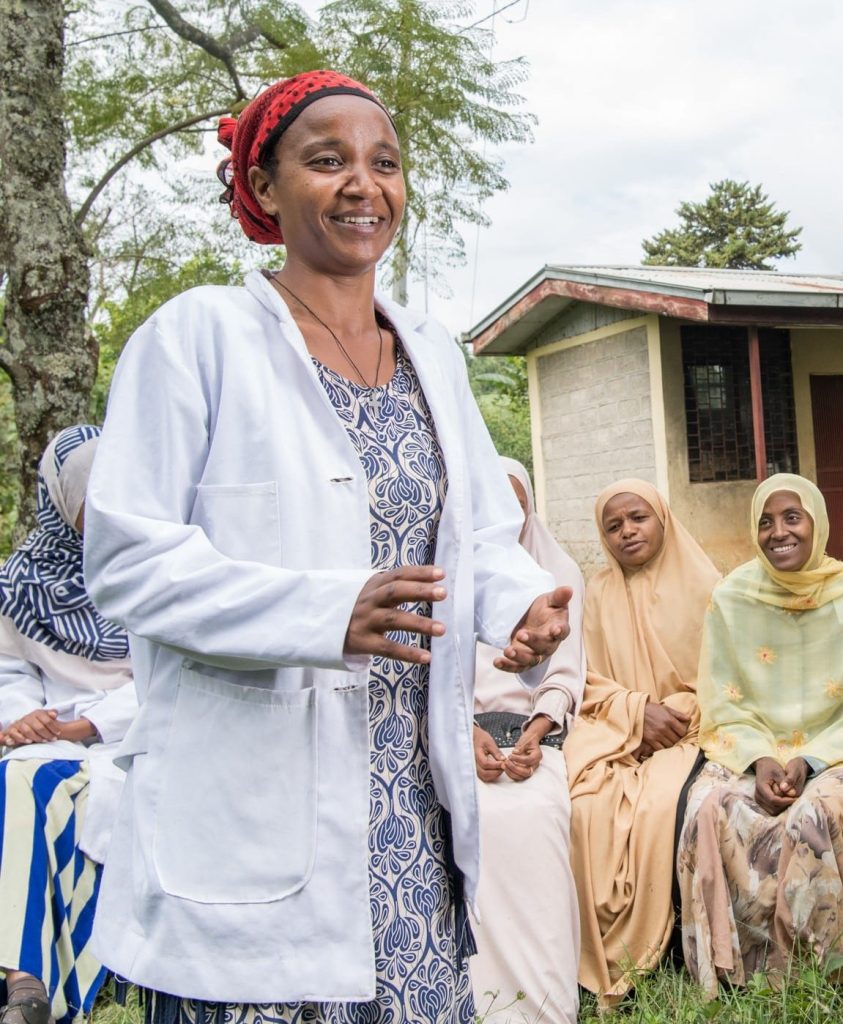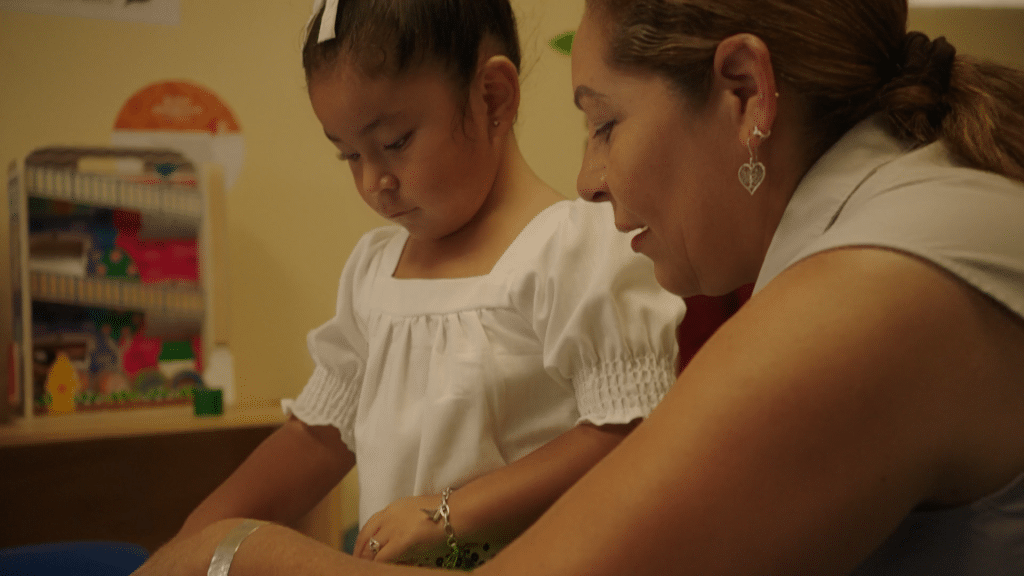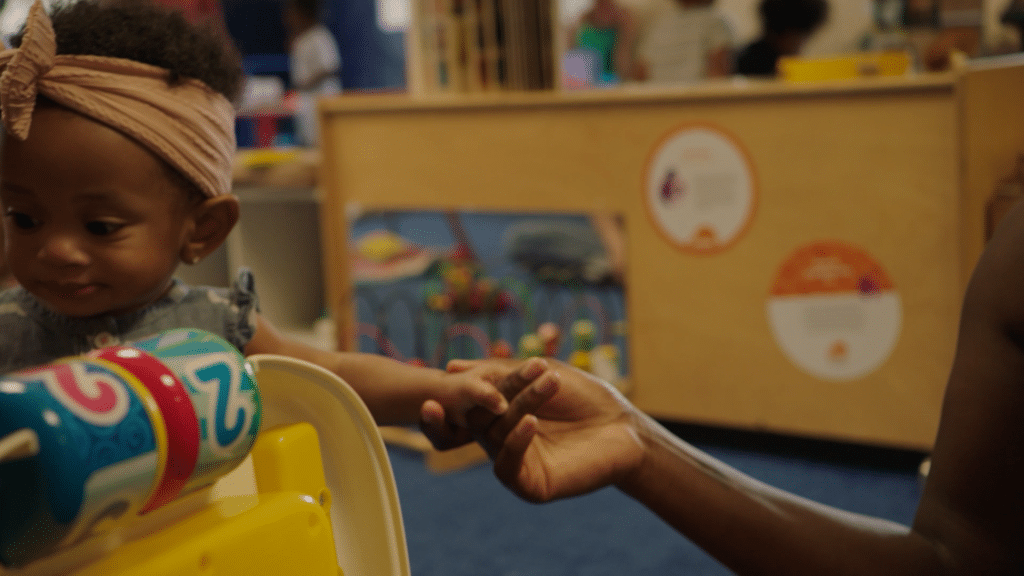
Around the world, health advocates, care providers, and researchers are working to expand access to quality contraception and safe abortion because they understand that the ability to choose whether and when to have a child is essential to living an empowered life and foundational to an equitable society.
In Ethiopia, for example, the Ethiopia Public Health Association (EPHA) has trained thousands of health extension workers to provide comprehensive family planning education in their communities. By 2019, programs like this, alongside additional efforts, contributed to a 27 percent increase in contraceptive use.
The David and Lucile Packard Foundation has long supported grantees, like the EPHA, that have contributed to significant improvements in access to and quality of reproductive health care in countries throughout South Asia and Sub-Saharan Africa. Thanks in part to these locally-led efforts, many individuals and couples have better, higher-quality reproductive health options – and in turn, more agency over their health and lives – than they did just a few decades ago.
Despite this progress, millions of people still lack access to a modern contraceptive method, and unsafe abortion continues to be a leading cause of maternal deaths in these regions. And continued progress is challenged by increasing disruptions from conflict and climate change and threatened by a rise in the influence of opposition groups. At the same time, surges in the youth population mean that more young people than ever need access to quality, comprehensive reproductive health care.
Our New Initiative
The conclusion of our previous grantmaking strategy gave us the opportunity to explore how the Packard Foundation could best confront today’s challenges and contribute to continued advances in reproductive health. Given the significant changes since we first began investing in global reproductive health 25 years ago, we have carefully considered how our work can evolve to bring more impact to more people, more quickly within the urgent context of today’s rapidly evolving landscape.
As we explored options, promising trends offered glimpses of what is possible. Advances in technology are creating new ways to deliver care, women’s and youth movements are gaining power and influence, and more countries are putting policies in place that promote reproductive health, rights, and access. These developments have the potential to catalyze exponential change, especially for those who have faced hurdles in obtaining essential reproductive health services.
The Foundation’s new Global Reproductive Health initiative is designed to harness these opportunities and support expanded and accelerated progress on reproductive health and gender equity so more people throughout Africa, with an emphasis on East and francophone West Africa, can thrive and fulfill their aspirations.
Building on our previous country-based work, we are shifting our investments to the regional level where governmental bodies and non-governmental organizations can promote progress in multiple countries simultaneously, potentially creating change for millions. By leveraging the influence of cross-border organizations, the knowledge-sharing capabilities of regional information and advocacy hubs, and the organizing power of civil society actors and networks, our grantees can preserve and expand access to comprehensive reproductive health care in both regions.
This initiative has two interdependent focus areas that together will help ensure that people in Africa, particularly those in East and francophone West Africa, have access to comprehensive reproductive health care and support from gender-sensitive policies that recognize and address needs, inequalities, and challenges specific to women and girls.
Evolving Reproductive Health Care Delivery
Reproductive health care delivery must evolve to respond to the needs of young people and be more resilient to external shocks, such as disruptions due to climate change or conflict, to ensure consistent access to quality care regardless of circumstances.
Our new initiative is designed to address these changing needs by investing in:
- New ways of delivering care and advocacy for best practices that enable consistent access, with continued emphasis on reaching those whose needs are not met by current and traditional models.
- Making a greater range of quality contraceptive and abortion products available to more people.
- Mobilization of additional resources for sexual and reproductive health services and products.
Championing Powerful Voices
Women, young people, and dedicated health care professionals across Africa are coming together to demand change, raising their voices to advocate for issues they care about and holding institutions accountable to their gender equity and reproductive health commitments.
To strengthen these leaders’ ability to create the conditions for change, we will:
- Support and equip international networks of civil society actors as they advocate for funding, policies, and programs that support reproductive health.
- Connect, organize, and amplify the voices of the youth, feminist, and public health advocates who are deeply connected to local issues and contexts, so they can better coordinate actions to educate and influence regional leaders.
Partnering to Accelerate Progress
We will continue to prioritize the perspectives of leaders and advocates who hail from and represent the dynamic and vibrant regions in which we are working, amplifying the voices of community-based advocates who champion human rights and organize for change. And we will work to mobilize increased prioritization and funding for sexual and reproductive health from sources within and beyond each region.
When people have access to comprehensive reproductive health care, they can flourish. And when they have the agency to shape their own lives, their families, communities, and countries are stronger for it. There is high-impact work underway to advance reproductive health throughout East and francophone West Africa. Together with our grantees and partners, we will invest in new ways that propel, amplify, and expedite this progress – striving toward a day when everyone can get the care they need and build the futures they want.
Note: This blog was updated in December 2024 to reflect the current geographic focus of the initiative.
Header Photo: Women partaking in a family planning training program at Buture Health Post as part of the Ethiopia Public Health Association’s (EPHA) Health Extension Program | Maheder Haileselassie Tadese/Getty Images/Images of Empowerment





